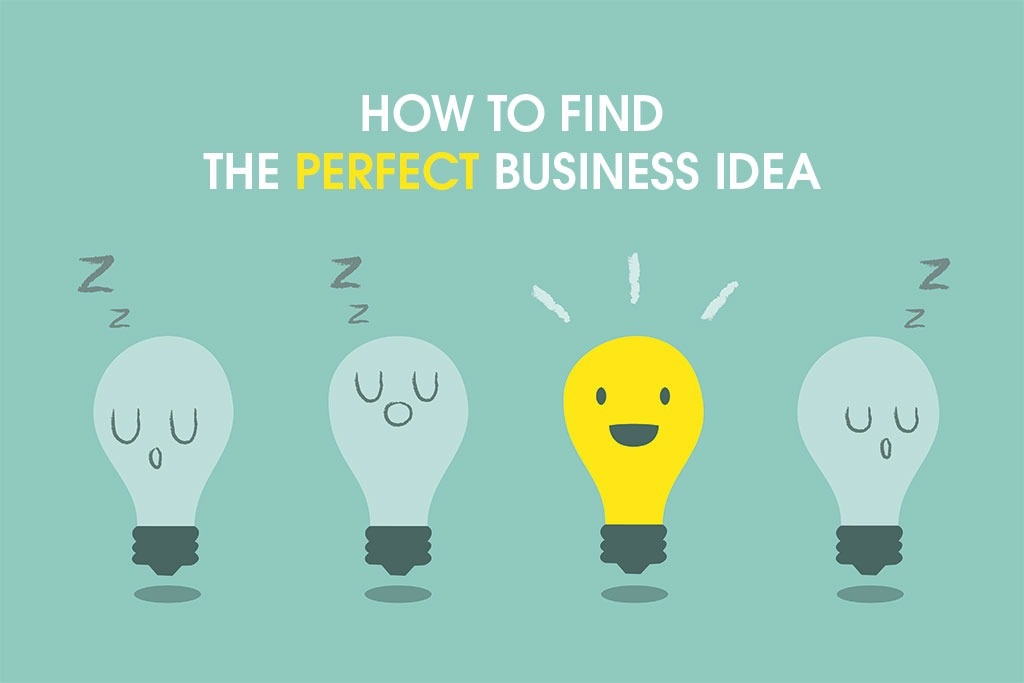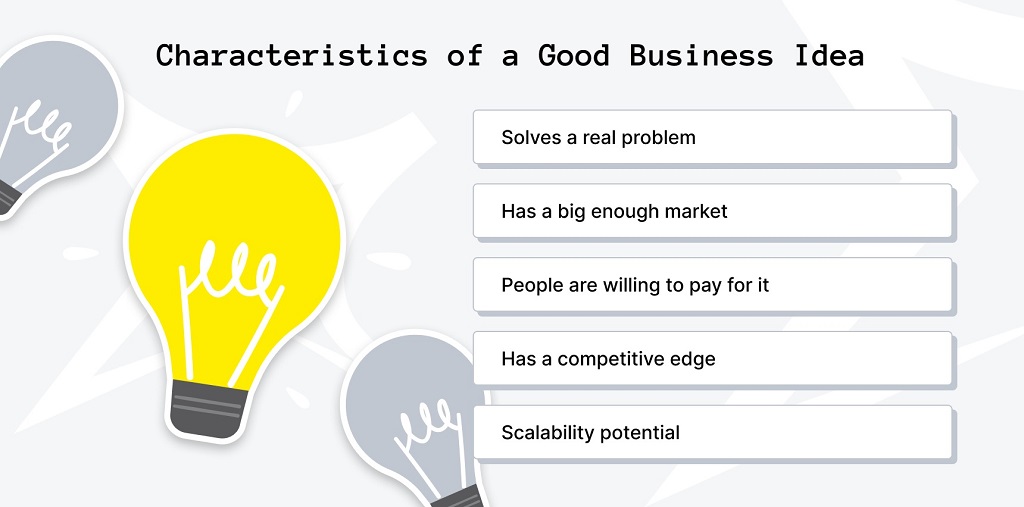What Defines a Good Business Idea? Essential Characteristics Explained

Starting a business is an exciting journey, but not every idea leads to success. A good business idea can set the foundation for a thriving enterprise, while a weak one may falter quickly. Understanding what makes an idea strong is crucial for aspiring entrepreneurs. At Entrep Business, we believe that identifying the right idea involves evaluating specific traits that align with market needs, personal strengths, and long-term potential. This article explores the essential characteristics of a good business idea, offering clear insights to guide you toward success.
Why a Strong Business Idea Matters
A business idea is more than a fleeting thought—it’s the blueprint for your entrepreneurial journey. A strong idea provides direction, attracts investors, and inspires confidence. However, not all ideas are created equal. The characteristics of a good business idea determine whether it can withstand challenges and grow into a sustainable venture. By focusing on these traits, you can avoid common pitfalls and build a business that thrives in a competitive market.
Key Characteristics of a Good Business Idea
Every successful business begins with an idea that meets specific criteria. Below, we break down the essential characteristics that define a promising business idea.
SolVES a Real Problem
A good business idea addresses a genuine need or pain point in the market. It identifies a problem that customers face and offers a practical solution. For example, a service that simplifies online grocery shopping saves time for busy professionals. To ensure your idea solves a problem, research your target audience thoroughly. Ask questions like: What frustrates them? What do they need that isn’t currently available? A solution-driven idea builds customer loyalty and creates demand.
Aligns with Market Demand
Even the most innovative idea will struggle if there’s no demand for it. A good business idea taps into current or emerging market trends. Conduct market research to understand consumer preferences, spending habits, and gaps in the market. For instance, the rise of eco-conscious consumers has fueled demand for sustainable products. By aligning your idea with what people want, you increase its chances of gaining traction.
Offers Unique Value
What sets your idea apart from existing solutions? A good business idea provides a unique value proposition (UVP) that differentiates it from competitors. This could be a lower price, better quality, or a novel feature. For example, a coffee shop that offers customizable blends stands out in a crowded market. To define your UVP, analyze competitors and identify what makes your idea special. A clear advantage attracts customers and builds brand loyalty.
Scalability for Long-Term Growth
A great idea has room to grow. Scalability means your business can expand without being limited by resources, time, or logistics. For instance, a software platform can serve thousands of users without significant operational changes, unlike a small bakery with limited oven space. Consider how your idea can evolve over time. Can it reach new markets or adapt to changing trends? Scalable ideas ensure long-term success and profitability.
Matches Your Skills and Passion
A good business idea aligns with your strengths and interests. Passion fuels persistence, which is critical when facing entrepreneurial challenges. Additionally, leveraging your skills increases your confidence and competence. For example, if you’re a skilled graphic designer, launching a branding agency makes sense. Reflect on your expertise and enthusiasm to ensure your idea is a natural fit. This alignment keeps you motivated and enhances your chances of success.
Financial Viability
Profitability is a cornerstone of any good business idea. Your idea must generate enough revenue to cover costs and provide a return on investment. Create a basic financial plan to estimate startup costs, pricing, and potential earnings. For instance, a subscription-based fitness app may have low overhead costs but high revenue potential. Ensure your idea is financially feasible by researching costs and market pricing. A viable idea supports both short-term survival and long-term growth.
Adaptability to Change
Markets evolve, and so must your business idea. A good idea is flexible enough to adapt to changing consumer preferences, technology, or economic conditions. For example, restaurants that pivoted to delivery services during the pandemic thrived despite restrictions. Build adaptability into your idea by considering how it can evolve. This resilience ensures your business remains relevant over time.
How to Evaluate Your Business Idea

Once you have an idea, test it against these characteristics. Start by asking key questions:
- Does it solve a specific problem for a defined audience?
- Is there evidence of market demand?
- What makes it unique compared to existing solutions?
- Can it scale to meet growing demand?
- Does it align with your skills and passion?
- Is it financially viable in the short and long term?
- Can it adapt to future changes?
Conduct surveys, analyze competitors, and seek feedback from potential customers. Additionally, create a simple business model to test feasibility. This evaluation process helps refine your idea and identify potential weaknesses before you invest time and money.
Common Mistakes to Avoid
Even promising ideas can fail if you overlook key factors. Avoid these common pitfalls:
- Ignoring market research: Assuming demand exists without evidence can lead to failure.
- Overcomplicating the solution: A simple, focused idea is often more effective than a complex one.
- Neglecting competition: Failing to differentiate your idea makes it harder to stand out.
- Underestimating costs: Misjudging financial needs can derail your business early on.
- Lack of passion: Pursuing an idea you don’t care about reduces motivation.
By addressing these risks early, you can strengthen your idea and increase its chances of success.
Real-World Examples of Good Business Ideas
To illustrate these characteristics, consider successful businesses that embody them. Airbnb solved the problem of expensive hotel stays by offering affordable, unique accommodations. Its scalability allowed it to expand globally, and its platform adapted to include experiences alongside rentals. Similarly, Tesla tapped into the demand for sustainable transportation, offering innovative electric vehicles with a strong UVP. These examples show how aligning with the characteristics of a good business idea leads to lasting success.
Steps to Develop Your Business Idea
Ready to turn your idea into reality? Follow these steps:
- Identify a Problem: Pinpoint a specific issue your target audience faces.
- Research the Market: Analyze demand, trends, and competitors.
- Define Your UVP: Clarify what makes your idea unique.
- Test Feasibility: Create a basic financial plan and gather feedback.
- Plan for Scalability: Consider how your idea can grow over time.
- Stay Flexible: Build adaptability into your business model.
By following these steps, you can refine your idea and lay the groundwork for a successful venture.
Read More Also: Is Mathematics for Business Difficult
Conclusion
A good business idea is the foundation of entrepreneurial success. It solves a real problem, meets market demand, offers unique value, and aligns with your skills and passion. Additionally, it must be scalable, financially viable, and adaptable to change. By carefully evaluating your idea against these characteristics, you can avoid common mistakes and build a business with lasting potential. Take the time to research, test, and refine your idea—it’s the first step toward turning your vision into reality.
Read More Also: Visa Gift Card Security Tips for Amazon Transactions
Frequently Asked Questions
What makes a business idea successful?
A successful business idea solves a problem, meets market demand, offers unique value, and is scalable, financially viable, and adaptable.
How do I know if my business idea is good?
Test your idea by researching market demand, evaluating financial feasibility, and ensuring it aligns with your skills and passion.
Can a business idea succeed without market research?
Market research is critical. Without it, you risk launching an idea with no demand, leading to potential failure.
How important is passion in a business idea?
Passion drives persistence and motivation, helping you overcome challenges and stay committed to your business.
What are some examples of scalable business ideas?
Scalable ideas include software platforms, e-commerce stores, and subscription services that can grow without significant resource constraints.








